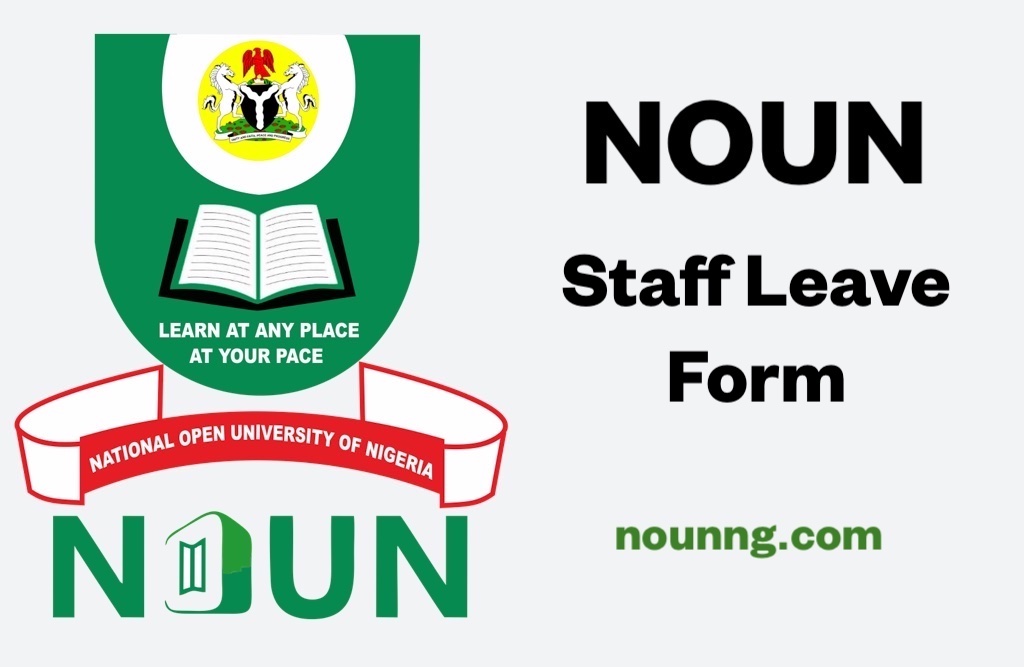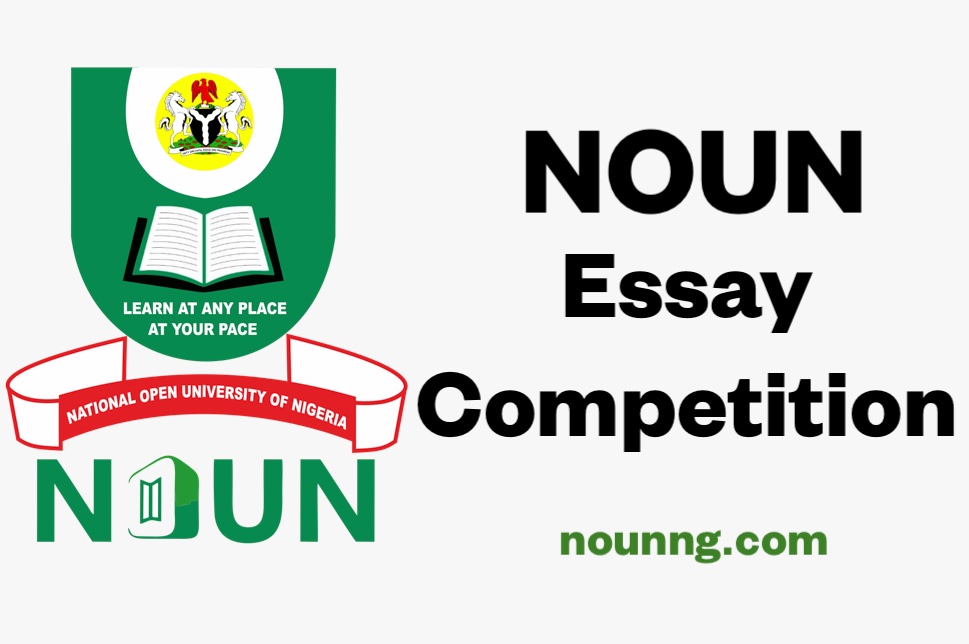On this page, you will learn the 30 most common terms in the National Open University of Nigeria (NOUN). This list will guide new students of the university to fast-track their knowledge of the popular terms used by students and staff of the varsity.
Most times, long words are replaced by common terms in NOUN, Nigeria. Examples of such terms include; NOUN, TMA, CMA, NT, etc. So, I will walk you through these terms with definitions so you can get familiar with these terms.
Just as every other institution has its slang and shortcodes for a particular thing, the National Open University of Nigeria has the same as well.
As a student of the National Open University of Nigeria, you may be lost if you don’t pay attention to what is going on in the school and you may not be able to understand what other students are referring to when it comes to these terms.
This article will outline each of the terms, abbreviations, full meanings, their usage and possibly their importance to the student.
30 Common Terms in National Open University of Nigeria (NOUN).
Below is the list of common terms used in the National Open University of Nigeria.
1. Matric:
Matric is a short form of the word matriculation, which is the first and most welcoming celebration conducted by the institution for her students.
Related: NDA Admission Requirements for 76th Regular Course
2. TMA:
TMA stands for the term Tutor Marked Assignment. This is just like the CAs done in primary or secondary schools. It comes in three different forms such as TMA1, TMA2 and lastly TMA3. Every student of NOUN will be required to partake in each of the TMAs as they will be awarded ten marks for each.
Read also: NOUN GST Portal for TMA Submissions (elearn.nou.edu.ng)
3. E-EXAM:
This is a computer-based examination for only the students of the hundred level and two hundred level of the National Open University of Nigeria. Its two credit unit courses come with 70 questions mixed with both objectives and multiple-asked questions which are popularly known as fill-in-the-gap questions while three credit unit courses come with 100 questions.
Read also: Download NOUN E-Exam Timetable
4. POP:
POP stands for the term Pen On Paper examination. This examination is for those above two hundred levels starting from three hundred to the highest level of the university.
Read also: Download NOUN Pen-on-Paper (POP) Exam Timetable
5. OBJ:
The term OBJ stands for Objectives questions which usually have four options below the questions for students to make their choices for answers.
6. MOQ:
This stands for the multiple questions that come with blank spaces either at the beginning, middle or the end of the question. Here the students are mandated to type in the answers into the blank spaces as there are no options for this MOQ questions.
7. Examination Clearance:
For any NOUN Student to sit for his or her examination, he or she is required to do an examination clearance to get an examination pass. This document is what the student will use to gain access to the examination hall. Examination clearance can be done at your study centre or at the examination venue earlier than the time for your papers.
Read also: NOUN Final Clearance Procedure | How to Pay & Documents Required
8. E-wallet:
The e-wallet is a student’s pocket where his or her money can be stored and used at any time for registration purposes.
Read also: How to Fund NOUN Portal E-Wallet Balance
9. SIWES:
This is the Student Industrial Work Experience Scheme, which only students who have this package in their colleges can partake in. It can be done for a year or less depending on the course and what the student has been assigned to do. This is known as IT by so many students.
Read also: How to Write NOUN Industrial Training/SIWES Report (Logbook)
10. Project:
This is a general school term, there are different types of projects. The mini projects and the major projects. Note that projects are assignments given to students for research purposes with the aid of supervisors.
==> NOUN Project Results for Postgraduate Students
11. Business Plan:
The fact you are a student of NOUN, the institution has derived so much joy in helping her students gain knowledge even outside the school environment. This means each of her Students can learn a trade or business whilst in school and be graded for that too.
Read also: NOUN GST302 Business Plan Sample & How to Write It
12. Core Courses:
These are compulsory courses for every student to take before he or she can be termed due for graduation. They usually have this capital “C” inscription beside the course description. Any of them picked for a semester must be written and passed.
Read also: NOUN Course Registration Guidelines for New and Returning Students
==> How to Pay NOUN Course Registration Fees Online
13. Elective Courses:
These are courses that a student can select either one or two for each semester, they are not compulsory courses so each student is left with choices on any one they wish to do. It doesn’t matter if a student failed an elective course, this does not hinder them from graduating in as much he or she passed all the Core/Compulsory courses.
==> NOUN Postgraduate Registrable Courses (Masters, PGD & PhD)
14. Study Centre:
The National Open University of Nigeria is a distance learning institution, so it has its study centres located in various locations to bring its students closer to the management of the institution.
Read also: NOUN Study Centres List, Addresses & Contact Details
15. Lecture Theatre:
Lecture Theatre is a vast hall built for any program or performance held in the school.
16. Student Week:
The student week is a week dedicated for the students to have and spend their time together. During this period, students get to know each other and also do some physical exercises with their fellow students and staff.
17. Online Facilitation:
The National Open University of Nigeria have a speciality in them, so they have made it easy for her student to study online whilst their lectures lecture them through their registered courses.
Read also: NOUN CEMBA/CEMPA Programme Admission Form
18. E-learning:
This is an online learning portal for her registered students to study and demand classes online. There is also availability of course materials in this portal.
Read also: (elearn.nou.edu.ng) NOUN eLearn Portal New Web Address and How to Access
19. Virtual Examination:
The institution is a distance learning institution which gives room for all its staff and students to work and learn in the same space of time. So each student can make a demand on how to write his or her examination either physically or online via the deanounvirtual portal.
Read also: Everything You Need to Know About NOUN Virtual Exam
20. NOUN CBT Centre:
The National Open University of Nigeria has CBT centres in each of its study centres to enable registrations of courses or other technical support needed from its students. It also treats technical issues or challenges encountered by the institution or its students.
21. C/O:
CO stand for Carry-Over-Examinations. Those examination written but failed, the causes of this is mostly when a student miss to take his or her TMAs fails to write an examination or has inadequate preparations for an examination.
Read also: How to Drop Course in NOUN: A Step-by-Step Guide
22. NE:
NE Stands for Not Examinable, there are some courses which most students wrongly register or they were available for a particular program but later removed though still available in the student portal. These courses if noticed on time can be dropped before dropping of courses stop for a session.
23. NT:
Simply stand for the term No TMA. This means the students missed out during the duration of TMAs but wrote the exam. In this case, the student is asked to retake the course during another semester or at the study centre based on the conditions why he or she missed taking them in the first place.
24. Semester:
There are slightly three semesters in a year. This is known as the sessions that make up the years a student needs to partake in his or her program or course before graduating.
Read also: How to Check NOUN Result on Portal
25. Course Codes:
These are shortcodes such as ENG111, CSS111, and PAD102 which denote a course.
Read also: Miva Open University Courses, Admission Requirements & Tuition Fees
26. Course Credit:
Course credit determines the amount to be paid for a course and the quantity for that course for a program. I.e. two credit unit courses, three credit unit courses, six credit unit courses and so on.
27. Course Materials:
These are handouts provided for the students with the instructions after registration of courses has been done by the student.
Read also: NOUN eCourseware: How to Download NOUN Course Materials
28. GSTs:
GSTs are general courses that all her students partake in, no matter the level or program one is studying in the National Open University of Nigeria, you must strive to pass all the GSTs available in your portal before you can graduate. The available GST courses are currently in NOUN as at the time of writing this article are; GST101, GST102, GST103, GST104, GST105, GST107, GST201, GST202, GST203, GST204, GST302, GST707 and GST907.
Read also: NOUN GST Portal Login Link and TMA Guideline
29. P&Q:
This common term is usually heard during examination. It stands for exam past questions and possibly answers.
30. Academic Calendar:
This is a calendar drafted out after a senate meeting has been done to keep her students abreast of what they should expect from each semester.
Read also: Top 10 Best Online Universities in Nigeria
Conclusion: 30 Common Terms in National Open University of Nigeria.
There is hardly a semester which any student will go through without coming across each of these common terms. Note them down so that you will not be lost in between conversations held in public by those who are already acquainted with them.
Recommended: How to Fund NOUN Portal E-Wallet Balance








